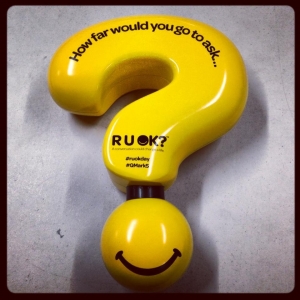This blog began as a marketing exercise, as part getting to know what resources were available for mental health I began looking at online self help forums through Facebook, message boards and the like.
The breadth and diversity of self help forums for children; giftedness, autism, behavioural disorders, and many more overwhelmed me. These forums are incredibly vibrant, moderated by volunteers, with hundreds of enthusiastic contributors and readers. Most of the forums are virtually absent of any form of trolling, and with a topic as contentious as parenting even the disagreements are rare and mostly managed politely. It really did open my eyes to how effectively social media at its best can be used to support mental health.
Then I turned my attention to adult self help forums, and was stunned by how scarce they are and even the ones that do exist were so much quieter than what I had seen earlier. It was heart breaking to read one forum where a man was posting his increasingly distressed and unhappy thoughts over a series of months and receiving nothing but Internet silence in reply. I can only begin to imagine how this silence must have felt to him in what I can only assume was one of the lowest points of his life.
This got me to thinking about the differences between kids and adults. As a child, ideally there is always someone who has their out for you. Parents, grandparents, teachers, siblings all play a role in making sure both the physical but also emotional needs of the child are looked after. Last week my daughter told my wife that an older girl had accidentally walked in on her at the school toilet and she had felt embarrassed. Now she doesn’t want to go to the school toilets anymore. Our response was immediate. We had a big chat to her about it, gave her some encouragement, talked to her school teacher, and one of the teacher aides agreed to take her to the toilet the next day before lunch to get her used to it again. In a perfect world, all children would have multiple people in their lives who are looking out for them to make sure they are ok.
But as an adult who is there looking after your problems?
“I’ve noticed its been a few weeks since you went to the gym, are you feeling ok ?”
“Every time we have to have a staff meeting you get sick and have to go home, are you ok ?”
“We all used to drink too much when we were teenagers, but you are still doing it, are you ok?”
Today is international suicide prevention day, as well as being Are you Ok day. If you ever felt like you needed permission to ask a friend or a colleague “are you ok?” then today is it.
Mental health professionals help people everyday who haven’t been able to figure things out for themselves. There is an old saying “you cant solve a problem with the same brain that created the it”, sometimes it really is as simple as getting another person’s opinion. When a tooth hurts, no one expects you to drill it yourself, when your throat hurts, no one expects you to decide for yourself whether you need antibiotics or just time and rest, yet when your emotions hurt, or your behaviours hurt, it is like we expect people to figure things out for themselves.
There are a lot of trained professional in medical, psychological, and family practices all around the country. If you ask someone today if they are ok and the answer is no, there is no shortage of places to turn for help.

